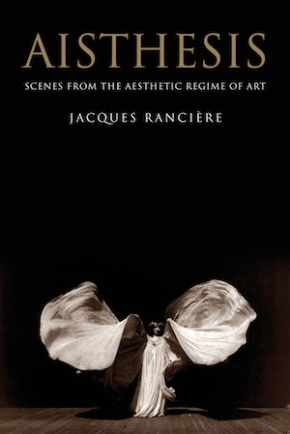Book Review: Jacques Rancière. Aisthesis: Scenes from the Aesthetic Regime of Art. New York: Verso, 2012. 304 pp.

In histories of Western art, modernism is a deceptively straightforward term: it is often used to refer to a turning point in aesthetic production, a radical shift in style that belongs to a new form of historical self-consciousness. But such accounts typically disregard the various ways in which modernism was produced and the moments of political and aesthetic possibility prior to its periodization as historical modernism proper. For decades, the French philosopher Jacques Rancière has been upending our preconceptions about the relation between art and politics. His newly translated work Aisthesis: Scenes from the Aesthetic Regime of Art presents readers with a series of interventions into the field of aesthetics, tracing its role in the emergence of artistic modernism. At stake for Rancière is our reception of modernism’s legacy and the political closure that has been entailed by it. As he writes at the end of the book’s preface, “Social revolution is the daughter of aesthetic revolution, and was only able to deny this relation by transforming a strategic will that had lost its world into a policy of exception” (xvi).
In Aisthesis, Rancière is not looking for an essence or truth inherent to art. Rather, he is concerned with the ways in which what he calls “the aesthetic regime of art” has been used to identify particular images, performances, texts, and objects. Art, for Rancière, does not enter into a domain called politics from a position of autonomy. Rather, art is always already a social practice, a distribution of bodies within a political field. In each chapter, he attempts to trace a logic of art that departs from the interpretive network that gives it meaning. Each of the scenes that Rancière explores in Aisthesis are treated as instances in which “a given artistic appearance requires changes in the paradigms of art” (xi). Each object of study, in other words, is treated as an instance of “art” but also as a singular moment (of novelty, revolution, or emotion) in which art is reconstituted. Each scene is a “fabric,” a “moving constellation,” in which these various modes of perception, affection, and thought are woven together. Each object of study is an instance in the formation of the aesthetic regime of art and “a displacement in the perception of what art signifies” (xiii). Continue reading


